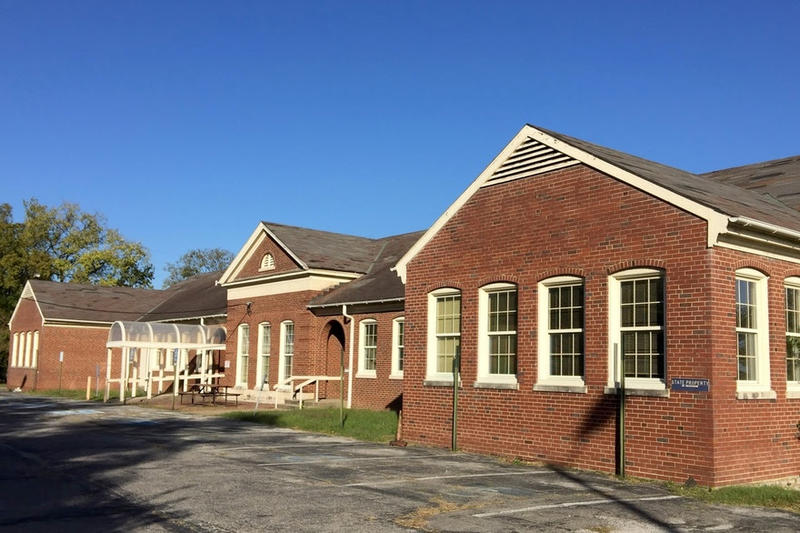
Three former school buildings with rich and varied histories have been deemed “endangered” by a Nashville preservation group, which is raising the alarm about disrepair and proposed demolitions.
There’s as much urgency as ever before in the latest “Nashville Nine” list announced Thursday by Historic Nashville Inc. Because of the pace of development in the city, the nonprofit declares urgent action needed on several properties. The group calls special attention to one block of Music Row that could be demolished, as well as the pace of residential teardowns in “working class” urban neighborhoods.
“In Nashville, the biggest threat to all of our historic places is just development,” said Jenn Harrman, Historic Nashville board president. “We’re certainly not opposed to progress. … But at the same time, there are so many ways that you can find a balance between that progress and also not completely wiping out your history.”
Battle Brewing Over School For The Blind
Already this week, one of the properties threatened by demolition has gained a key defender.
At stake is the last remaining building at the original Tennessee School for the Blind site, which sits on a prime plot on Rolling Mill Hill, overlooking downtown Nashville.
The 1942 building was used for the school’s black children before integration in 1965, so its historically significant use and its architecture make it eligible for the National Register of Historic Places.
Harrman said she was shocked to learn of a city proposal to buy the property from the state and to knock down the building so that Metro Schools can build a new School of the Arts there.

“This particular building is one of a kind,” she said. “It’s a story that Nashville needs to tell and not just tear it down — not just, you know, keep a few bricks and make a monument.”
The demolition threat, which is spelled out in
a Metro Council bill, caught others by surprise as well.
“If we were doing this the right way, we’d be thinking, ‘This is a site that has a richness of heritage,’ ” said Councilman Freddie O’Connell, who represents the area. “I hope it’s not too late in the conversation.”
O’Connell noted that the school district hasn’t approached him to discuss its plans. The district declined to comment to WPLN on Thursday.
In the meantime, O’Connell said he’ll amend the council bill to eliminate any reference to demolition. He agreed with Harrman that some type of adaptive reuse of the building should be considered for any future city school there.
Their argument has gained an important ally. On Tuesday, the Tennessee Historical Commission
wrote a letter to Metro to “strongly encourage the preservation of the significant historic resource.”
That letter also warns the city that any change to the property would trigger a review, and it goes on to suggest that Tennessee write a protective covenant for the building before finalizing an $11 million land sale to Metro.
Rosenwald School And Orphanage Face Risks
The group also hopes to preserve the stately 1930s Monroe Harding orphanage in Green Hills, where a pending proposal seeks to demolish the Colonial Revival-style building as part of a 31-home subdivision redevelopment.

The facility, designed by prominent Nashville architect Henry Hibbs, has been in limbo since 2012, when redevelopment ideas first surfaced. Last year, the foster care agency did decide to sell the property, setting off rounds of community meetings.
In August, the Metro Planning Commission voted against the latest housing proposal for the property, with commissioners blasting the development team for failing to explore an option that makes the historic structure a centerpiece of the community (
view the discussion).
Yet in the same meeting, officials made clear that they don’t have a legal way to permanently prevent demolition.
Farther west, in the rural Pasquo area, Historic Nashville Inc. is bringing attention to a former one-room Rosenwald School for black students. The simple 1924 schoolhouse is now a residence that has fallen into disrepair.
“It’s an issue of being able to keep up the property — that’s everybody challenge that owns a home,” Harrman said.
While some of the places on the “Nashville Nine” could experience antagonistic preservation fights, Harrman cites the Pasquo School as an example meant to draw attention — and aid — to a property owner interested in preservation assistance.
Familiar Fears Guide List
The annual list of endangered places also outlines concerns about redevelopment on Music Row along the 1000 block of 16
th Avenue South, where Bobby’s Idle Hour and neighboring buildings
have been targeted for redevelopment.
Finally, the trend of residential teardowns led Historic Nashville to collectively list the city’s “working class neighborhoods” this year.
Nominations for endangered properties are taken year round
at the group’s website.


